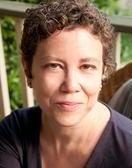In both Christianity and Judaism, the dates for the major spring holidays are guided by an intricate dance of the moon and the sun-the lunisolar calendar. This means Passover and Holy Week (from Palm Sunday to Easter Sunday) often overlap. And this year, Good Friday and the first Passover Seder fall on the same night, maximizing the logistical challenges for interfaith families who celebrate both religions. (I first wrote about this convergence in 2012, and again in 2015).
Theologically, many interfaith families experience more cognitive dissonance in the spring, when Passover and Holy Week overlap, than they do in December, with Hanukkah and Christmas. The idea that the Last Supper was a Passover Seder is tantalizing, though historically debatable. But for Jews, this idea may also raise the red flag of supersessionism-the problematic idea that Judaism was simply a starter religion in the evolution of Christianity.
The contrasting moods of Passover and Good Friday may also contribute to the dissonance. Good Friday is a solemn commemoration of the crucifixion and death of Jesus. A Passover Seder is a joyous celebration of the exodus from slavery in Egypt, involving feasting and drinking. (Though this joy may be tempered by acknowledging the violence of the plagues, frustration over the long history of Middle Eastern conflict, and the ongoing effects of slavery and colonial oppression worldwide).
Meanwhile, in the realm of the practical, both Passover and Good Friday involve culinary restrictions. And they are both traditionally marked in the evening. So the overlap this year may pose a greater logistical challenge than the overlap of Passover and Easter (which is celebrated mainly in the morning and afternoon).
So, how to honor both, with grace under pressure? Keep in mind that every family celebration, especially when there are small children involved, is going to be imperfect. As inspiration, I offer the words of multifaith bard Leonard Cohen: "Forget your perfect offering. There is a crack in everything. That's how the light gets in."
Below, I suggest some possible strategies for this year:
- Move the Seder. Many Jewish families celebrate multiple Seders-before, during, and even after the official eight days of Passover. If Christian family members want to fast and attend church on the night of Good Friday this year, consider shifting the first Seder to Saturday night. Some families might even wait to have a Seder on Sunday or Monday night, when the mood will be more festive for both Jewish and Christian family members.
- Adapt the Seder. Some Christians may be fine with going to a noon service on Good Friday, and then a first Seder on Friday night. And some interfaith families will feel they must hold the first Seder on the traditional date. In this case, it would be thoughtful to adapt the Seder main dish, if your Christian family members are avoiding meat for the Good Friday fast. So, salmon instead of brisket? Or, explain to extended family ahead of time that your Christian family members may skip the brisket and wine, but partake of the matzah-charoset-horseradish sandwich and matzah ball soup, egg and parsley.
- Adapt Easter. Whether you have your first Seder on Friday, Saturday, Sunday, or later, look for ways to make Easter easier for Jewish family members. For breakfast, we like to make matzah brie (eggs scrambled with matzah) instead of the traditional Easter pancakes-the savory protein dish offsets the sugar rush of Easter candy. And at Easter dinner, my interfaith family serves lamb, a Passover tradition in many Sephardic homes, rather than ham. (Be aware that there is a big debate about whether and what kind of lamb you can eat at Passover). Avoiding ham reduces the culinary dissonance, even in a family like mine that doesn't keep kosher the rest of the year.
- Curate. Trying to reenact every single family Passover and Easter tradition in one weekend may cause parents and children to melt down like Peeps in the microwave. Every family, whether monofaith or interfaith, curates the family traditions they want to preserve, and sets aside others. So, as much as I loved the idea of the Easter cake made in the shape of a lamb, we skip this tradition. I don't love cake made from matzoh meal, and the idea of cutting into a lamb cake always bothered my vegetarian daughter. Our preferred dessert for the weekend is matzoh toffee brittle. On the other hand, we always make space for dying eggs. We're a family of artists, and it pleases me that the hard-boiled egg is connected to both holidays.
As always, creating successful family holidays depends on putting yourself in the shoes of others, and clear communication. If a strategy works for you, try to tune out the self-proclaimed experts telling you that you are doing it wrong. Be confident in the knowledge that the different ways to celebrate together are as numerous as the leaves of spring grass.
Susan Katz Miller is a speaker and consultant on interfaith families and interfaith bridge-building, and author of Being Both: Embracing Two Religions in One Interfaith Family.
